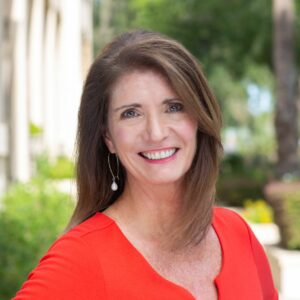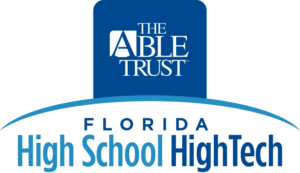Partner Perspectives
Mary Chance, President/CEO
Florida Consortium of Education Foundations
 What do you believe are some of the biggest challenges facing students in Florida today?
What do you believe are some of the biggest challenges facing students in Florida today?
The pace of change in general, particularly with the emergence of AI impacting every profession, is a huge challenge. We’ve been through the internet and the industrial revolutions and now AI is the big disrupter. The economic realities of the cost of living in general and college specifically are also challenging. I think it can be difficult for students to stay focused on degree-attainment and traditional coursework amid such disruption. We know degrees and credentials remain key for building a rewarding career and economic mobility. We need to help students stay focused on post-secondary attainment despite the challenges and disruptions.
What postsecondary trends are you seeing or hearing about?
From the employer perspective, we have long heard about the mismatch between the skills a college graduate shows up with and what is needed on the job. Successful students today are looking for opportunities to bridge that gap through multiple job experiences and relevant certifications along with their degree. Entrepreneurial skills are valued more than ever in such a rapidly changing work environment and many universities and colleges are offering programs that can give students an advantage in almost any field. We are also seeing fewer students have what we might call a “traditional” college experience and more shaping their own personal paths including a blend of in-person and virtual learning, taking courses from multiple institutions, and seeking “stackable” credentials that allow them to enter the workforce with a baseline degree or credential while continuing their education.
What is the mission/purpose of the Education Foundations?
Florida’s local education foundations – aligned with nearly all of our state’s 67 countywide school districts – connect community to classrooms to enrich education for students, innovate learning and power the potential of teachers through a variety of programs including classroom grants, mentoring and scholarships. The mission of the Consortium of Florida Education Foundations is to connect individuals, organizations, and financial resources to build the capacity and effectiveness of local education foundations.
How do education foundations work to help resolve these challenges and do the issues vary by region?
Florida is an extraordinarily diverse state. We are home to seven of the largest school districts in the country, such as Miami-Dade with 360,000 students, yet one-third of our rural counties have less than 10,000 students. Our member education foundations are equally diverse – some have 20+ staff members and facilities, others are entirely volunteer-driven. Their relationships with their school districts also vary. In solving issues and challenges, they all have to work within their unique context, community, and capacity. That said, we find more in common in terms of their challenges and goals than we find different. A big part of our work is to connect them to learn from one another as they work on the big challenges of engaging students, innovating learning, and empowering educators.
Learn More about
The Able Trust
Youth Programs
High School High Tech (HSHT) provides high school students with all types of disabilities the opportunity to explore jobs or postsecondary education leading to in-demand careers. HSHT links youth to a broad range of academic, career development and experiential resources and experiences that will enable them to meet the demands of the 21st century workforce.
Futures in Focus is intended to support students from grades 6 to 12 (aged 12-22) who have a disability documented by an IEP or 504 Plan.
- Improve participation in education and vocational-related activities leading to increased employment opportunities for middle/high school students with disabilities.
- Connect students to resources that assist them with education and employment pursuits, such as Florida’s Division of Vocational Rehabilitation.
- Increase enrollment in postsecondary education/training.
